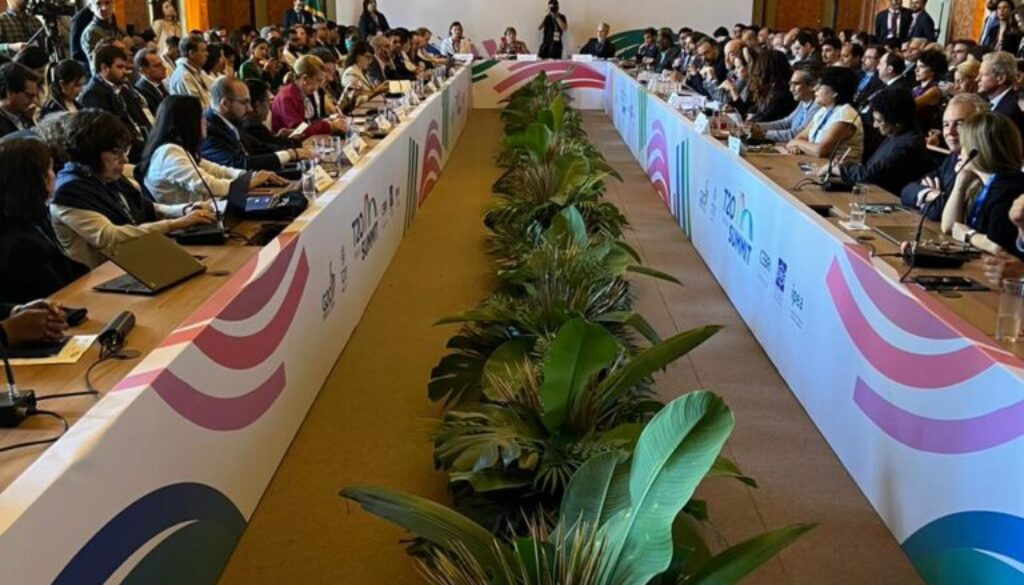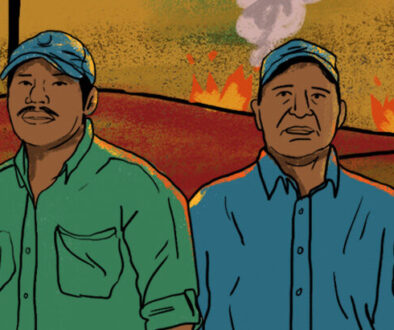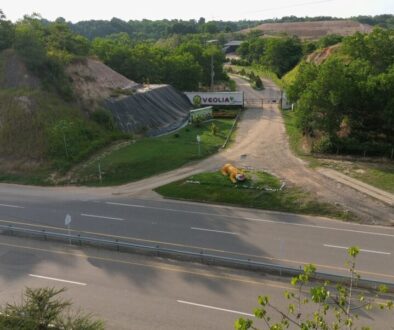The T20 and proposals from the South to address the global agenda
In a global scenario marked by multiple crises and growing inequalities, the Think 20 (T-20) is an essential platform, independent of national governments, that brings together think tanks and leading academics from the international community. This group develops policy proposals with in-depth analysis that bring a crucial perspective to G20 discussions.
In a context of increasing complexity, there is a historic opportunity to address in a more inclusive and transformative way the challenges that affect us globally. In the face of deepening crises of democracy, disproportionate impacts of the climate crisis, and socio-economic inequity, we need more inclusive and transformative international cooperation, and the T20 is one of the ways to achieve this.
The selection of themes this year is no accident; each addresses fundamental challenges, many of which particularly affect developing countries. However, for these discussions to result in effective action, the focus of their debates needs to not only recognize, but prioritize, the contexts and urgencies of the Global South.
Recent years have brought with them an evident deterioration in the quality of democracy and social progress in many parts of the world. There is a growing citizen disaffection with democratic institutions, a trend that reflects historical levels of distrust in political parties and representative institutions. Social outbursts, “soft” coups d’état, and authoritarian proposals that are gaining popularity, highlight a fragile and polarized political landscape, where political violence, persecution and repression of identities and social movements are gaining prominence.
Moreover, this panorama is framed by a series of structural factors that erode social cohesion and weaken the democratic system. Today’s capitalism, with a financial model that concentrates wealth in a few while excluding millions, undermines the foundations of the liberal democracy that flourished in the 20th century. At the same time, the digital revolution and the phenomenon of techno-feudalism fuel polarization and isolation, eroding confidence in institutions and democratic values themselves. The climate crisis, for its part, exacerbates the vulnerability of the most fragile economies, while the energy transition is becoming an issue of global justice, with the poorest countries facing the greatest adaptation and mitigation challenges.
In response to these problems, the T20, organized by Brazil, has been structured in 6 axes that will provide a framework for debates and public policy recommendations on critical issues such as how to incorporate policies that prioritize food security and create opportunities for local economies, as an urgent struggle to respond to growing inequality, poverty and famine. In this sense, social protection systems need to be reformed to address cyclical and systemic crises, providing resilience to communities. The inclusion of a development vision focused on social justice is imperative for the T20, urging richer countries to assume a role of historical responsibility.
In addition, the T20 agenda seeks to respond to the climate crisis and how to promote a just energy transition that allows economies to adapt without losing sight of their domestic development priorities, facilitating access to affordable and sustainable technology and financing. In this sense, from Southern Affairs we have promoted (within the T20 process) the imperative need for actions in favor of a just transition to include a human rights perspective, especially with regard to environmental and land defenders.
Another major focus is the structural impact that the current international financial architecture has had on developing nations and how it has perpetuated inequalities and dependency instead of offering stability and prosperity. This implies a transformation towards financial models that prioritize social and environmental impact rather than short-term profitability, promoting a financial architecture that does not restrict the growth of the Global South.
In parallel, proposals on digitalization and how to address the digital divide present an imminent structural challenge to ensure greater social and economic inclusion. We need policies that empower communities, minimize the risks of misinformation and exacerbated polarization.
Finally, another major debate will be how we strengthen multilateralism and global governance. We must propose reforms that democratize decision-making in multilateral organizations, ensuring equitable representation that supports sustainable development and protects human rights. This is the time to redefine the foundations of a multilateralism that works for all.
In this sense, the T20 in Brazil offers a unique platform for the countries of the Global South not only to have a voice, but also to give impetus to the necessary paradigm shift in international cooperation. Faced with an uncertain global context and multiple crises, these spaces are a historic opportunity.
Asuntos del Sur will be there to give voice to the challenges of the Global South and to influence the decision makers leading the G20. It is time to move towards a new democratic settlement and rescue democracy by placing it at the center of public policy to demand that governments act.





